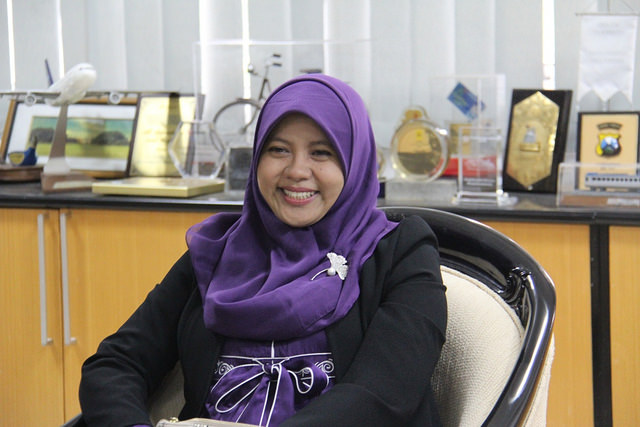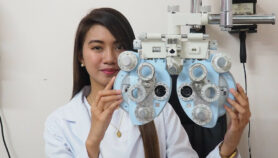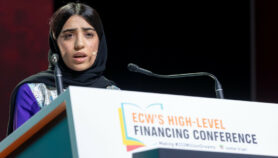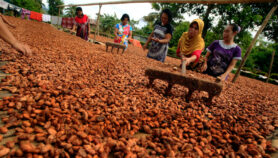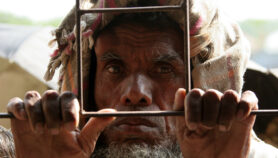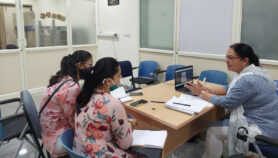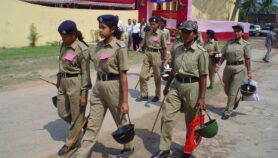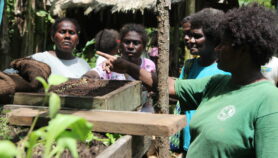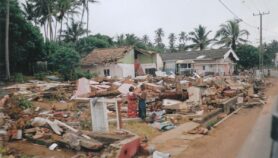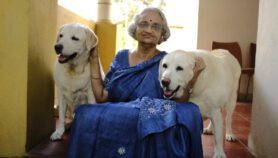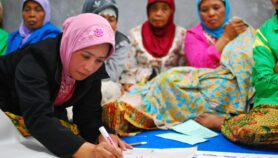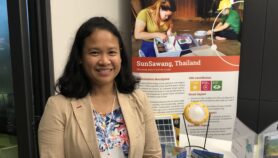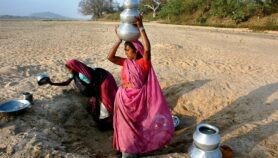Send to a friend
The details you provide on this page will not be used to send unsolicited email, and will not be sold to a 3rd party. See privacy policy.
[JAKARTA] Family support is key for women to excel in the science profession and to help balance career and family life, says an Indonesian female scientist who has won an award for her contribution to science.
“My husband, my parents, my brother and sister, my in-laws — they all support me, which is really important.”
By Sri Fatmawati of the Sepuluh Nopember Intitute of Technology
Sri Fatmawati of the Sepuluh Nopember Intitute of Technology (ITS) was honoured at the 2016 Elsevier Foundation Awards for Early Career Women Scientists in the Developing World held last 13 February in Washington DC, United States. She was awarded for her work in analysing the medical and pharmaceutical potentials of plant and fungi extracts normally used in herbal medicine.
She joined four other winners from different parts of the world in the programme run by The World Academy of Sciences (TWAS), the Organization for Women in Science for the Developing World (OWSD) and the Elsevier Foundation.
“The awards have been designed to honour a new generation of role models,” says Ylann Schemm, programme director at Elsevier Foundation.
“We are celebrating these five female scientists not only because of their excellent science, but also for the sheer determination they have shown in surmounting the obstacles many face working as women in low resource and sometimes even conflict settings,” he adds.
The other winners are Sushila Maharjan (Nepal), Magaly Blas (Peru), Etheldreda Nakimuli-Mpungu (Uganda) and Ghanya Al-Naqeb (Yemen).
Fatmawati says that support from her university is important to her as a scientist but support from her family “roots” her more.
The biggest challenge for female scientists is time management but with family support, one can stand out among male and female scientists in Indonesia and Asia-Pacific, stresses this biologist who has also received the Pemenang Fellowship International L'Oréal-UNESCO for Women in Science for research analysing substances from sponges that can lead to treatments for malaria, cancer and Alzheimer’s disease.
“My husband, my parents, my brother and sister, my in-laws — they all support me, which is really important. We work together and it helps my time management in being a mother, a wife and a scientist,” she says.
Fatmawati advises young female scientists to be consistent in their science path because the world needs them.
“[Do well] in your chosen science field because the world is waiting for our work for humanity,” she says.
She also notes that female scientists should never forget their role in raising the future generation, which she points out starts from the family. She maintains a blog, Dapur Fatma Fukuoka (Fatma Fukuoka’s Kitchen), where she collects her recipes for her children as well as makes notes about the science in the kitchen.
Her devotion to family also shows in her Facebook page where she posts more about her cooking along with family photos rather than showing her scientific achievements.
This piece was produced by SciDev.Net’s South-East Asia & Pacific desk.


